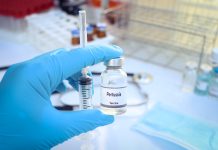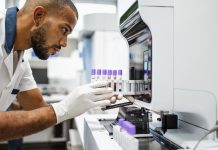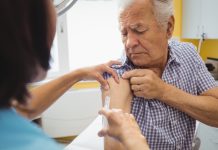Magnus Heunicke, Minister for Health at the Danish Ministry of Health, argues that one size doesn’t fit all when it comes to Denmark moving towards personalised medicine
Across Europe and the Atlantic, both public and private healthcare systems are witnessing a move from ‘one size fits all’ medicine towards ‘personalised medicine’. The vision is to tailor prevention, diagnostics and treatment to the individual patient made possible by integrating personal data from multiple registries.
Future patients should experience fewer side effects, and the healthcare system should be able to treat the patients, who are lacking treatment options today.
The Danish health data registries are unique and cover the entire population. For the past 40 years, Denmark has systematically collected and used healthcare data for treatment and research. This makes it possible to study the development of diseases and their treatment over time.
The Danish personal identification numbers enable data linkage across the national health registers – and all other public data registries in Denmark – on an individual level. Denmark is in a unique position to not only realise the potential of personalised medicine, but to lead the way for a state-of-the-art healthcare system that utilises data for the benefit of patients.
In 2019, Denmark established the Danish National Genome Center, with the purpose to operate and develop public national infrastructure for personalised medicine. Anchoring a sustainable infrastructure for personalised medicine in the public healthcare system brings with it three important benefits: collective effort, data Security and the patient as a focal point.
1) Collective effort: Equal access to personalised medicine
Establishing the Danish National Genome Center as a national node for the development and implementation of personalised medicine ensures that all patients will have equal and fair access to personalised medicine, regardless of where in Denmark the patient is treated. Realising personalised medicine is, however, not an individual task. Rather, it entails a strong collective effort.
Individual health data only becomes meaningful when compared to population data. Thus, personalised medicine requires infrastructures that enable the collection, storing and combination of multiple data sources across registries and individuals.
With the Danish National Genome Center, Denmark has created a unique platform enabling collaboration across state, regions, universities, life science industry and patients. Such collective efforts ensure the sustainable implementation of personalised medicine.
Like other developments in the field of healthcare, personalised medicine pushes boundaries, bringing with it new ethical and legal questions. From the start, ethical and legal discussions have been an integral part of the Danish initiative. Through national and international advisory boards, Denmark ensures that all solutions are developed in collaboration with both patients, citizens and professionals.
2) Securing data through public control: Ensuring public trust
Realising personalised medicine places a strong requirement for data security. The Danish initiative focuses on public control with publicly produced data. By keeping data under public control, Denmark can ensure its citizens that their data is stored following international standards for data protection, and that patient data is utilised with the most careful attention to safety.
Further, keeping public control over data strengthens Danish citizens’ right to self- determination. In the case of genetic testing, the Danish legislation states that patients must provide written consent before testing and consent to their data being used for research purposes.
Placing strong cyber and information security as the cornerstones of the sharing and use of data strengthens citizens’ trust in the healthcare system and data practices in general. A trust that is vital for both present and future collection and use of data.
3) Common good: Present & future patients as a focal point for collaborations
By anchoring personalised medicine in the public healthcare system, the Danish initiative places both present and future patients as the focal point of all developments and collaborations.
Firstly, the Danish initiative has sought that patients will benefit from the beginning. Today, whole-genome sequencing has already become an integral part of treating children and young people with rare diseases. More patient groups are currently being included in the Danish initiative, focusing on clinical areas where genetic testing can substantially raise the likelihood of giving a diagnosis.
Secondly, public control over data enables Denmark to place certain demands on collaborations, whether being with public or private actors. To gain access to Danish citizens’ health data, all projects must comply with GDPR and national legislation for data protection.
Additionally, the Danish ethical committee system has to approve all research projects, certifying the societal benefit of accessing data for the projects. This way, all new developments will first and foremost seek to benefit Danish patients and serve the common good of the public healthcare system.
Visions for personalised medicine in the future
Denmark has a unique position to make personalised medicine an integrated part of the Danish Healthcare system. But we are not there yet. The foundation for better collection and storage of health data is in place. An important next step is bringing the data closer to the daily care of patients.
Denmark’s strategy during the COVID-19 pandemic has shown how efficiently Denmark can collaborate and share data across public institutions when it counts. Looking forward, we must take inspiration from the way data practices have helped us through the pandemic.
The Danish vision is to develop a national infrastructure for smarter use of data and hereby give clinicians the support they need to offer the best possible treatment for the individual patient.











